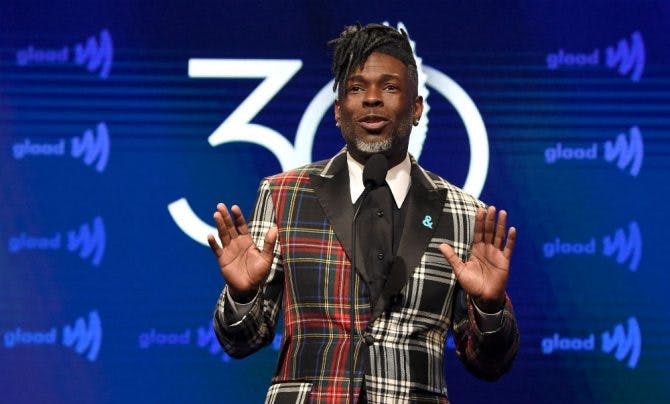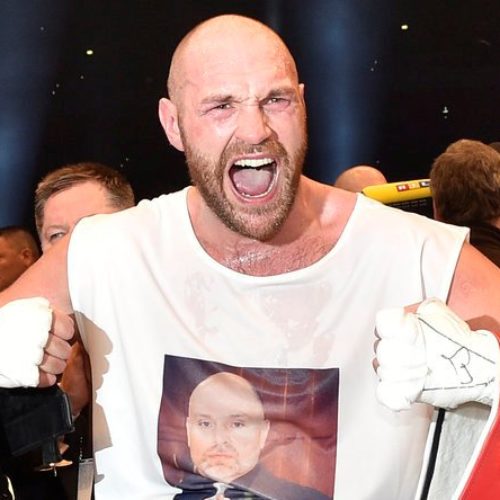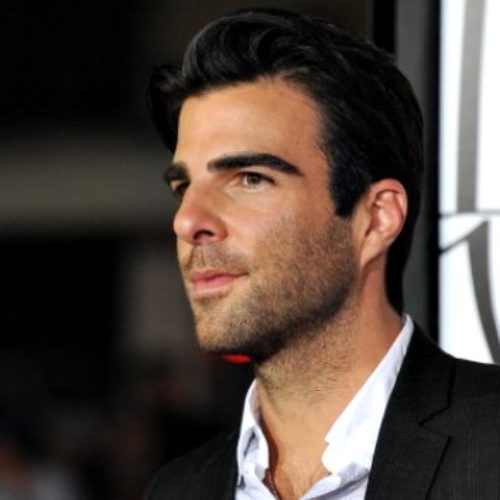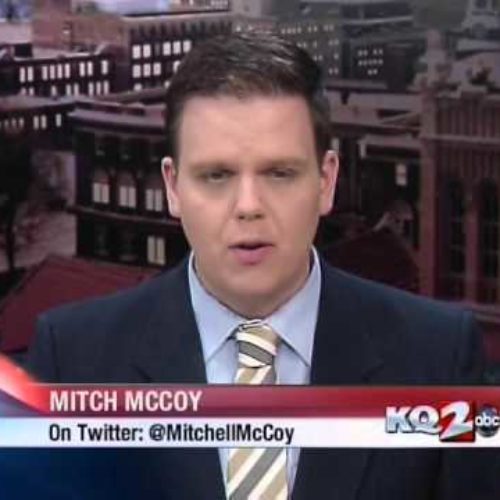“You have HIV. HIV does not have You.” Activist Morris Singletary is using his story of seroconversion sto help Black Gay Men deal with HIV
Originally published on Queerty
If there’s a person qualified to talk about the personal impact of an HIV diagnosis, it’s Atlanta’s Morris A. Singletary.
When he was diagnosed in 2006, he was already gravely ill. His diagnosis came as a shock, and things got worse before getting better. It wasn’t until he got on the HIV medication cocktail that things began to turn around, and his health and vigor for life returned.
Now 43 and HIV undetectable, the activist has been able to turn his experiences around and help others in the process–and then some. He’s worked for health organizations as a peer counselor/educator. He also started a successful live stream about living with HIV, which evolved into the HIV prevention and education initiative, PoZitive2PoSitive, he runs.
His work was recognized last year by GLAAD, which invited him to introduce Beyoncé and Jay Z to the stage at its 2019 GLAAD Media Awards in Los Angeles. It was, he says, a night he’ll never forget.
It’s a long way from the dark days Singletary experienced immediately after his diagnosis.
Singletary was born in Norfolk, Virginia, but raised by his mom in Atlanta, where he still lives.
Many gay men in the south, particularly those from African American communities, face challenges in being open about their sexuality. However, Singletary says there was no dramatic coming-out moment for him: it was overshadowed by other events.
“Living in the southern part of the United States, a church kid in the Bible Belt, I knew that my faith belief system was not in favor of homosexuality,” he recalled to Queerty. “I was 20 when I had my first male sexual experience. I was 22 years old when I called my best friend from high school and shared with her my sexuality.
“When I was diagnosed in 2006, I was so very advanced in my HIV diagnosis that I was near death. This is where my family learned of my sexuality. At the time, my sexuality did not matter. It was more about me staying alive and getting healthy.”
He began to feel unwell in 2005.
“I started having really bad issues with my stomach. I was eating and then noticing going to the restroom was uncomfortable. It progressed to the point where when I took a bite of food or swallowed liquid, I would throw up as fast as it entered my mouth. For Memorial Day Weekend of 2006, I met up with friends in Atlanta for a weekend of fun. I was so sick, I was not able to enjoy it. One of the friends from the weekend made me promise her I would seek medical advice.
“After my first doctor’s appointment, my doc called and told me my test was reactive for syphilis. She then asked if I had ever had an HIV test.”
Singletary says he’d not been tested before because “I did not know I was at risk. I did not think I was capable of contracting HIV.”
However, the test confirmed otherwise.
“At 3.15 pm on June 23, 2006, I heard the words: ‘Mr. Singletary, your test came back positive for HIV.’
“I was OK until I had to say the words to the nurse to schedule my first infectious disease doctor’s appointment. After saying those words, I cried for maybe an hour straight,” he recalls. “As time passed, I fought depression, I fought self-hate. I lost what it was to be me.”
Later, after losing his job, he turned to “drugs and a destructive lifestyle.”
“I did not handle my diagnosis well at all,” he says. If it wasn’t for his upbringing, he might not be here today. “I knew that as a church kid, I could not commit suicide.”
In the ten years after his diagnosis, he struggled to adhere to his medication. He’s far from being alone in this. A study last year revealed at least 7% of HIV positive people in the US don’t stick to their meds out of financial concerns alone. Others have issues with side-effects or managing regimens involving multiple pills.
“When I was diagnosed, I had less than 20 T-cells and close to 1 million viral load. Before getting diagnosed, I never took pills,” he remembers.
After his diagnosis, he had to take a large cocktail of different medications to get his illness under control.
“I got down to four pills, [but] I still hated pills… badly. I made a promise with my doctor. If I got down to one pill, I would adhere to my meds. I did not do such a good job in the beginning. After 10 years, I started and committed like never before.”
He says a turning point came in 2015 when he joined a groundbreaking support system for black gay men called THRIVE, designed to empower those with HIV.
“That was the turning point that put me on the right path to being healthy again.”
In 2017, he went public with his status on Facebook, posting a live video in which he discussed his diagnosis and health.
“I thought [the video] was going to be a one-time thing.”
The live stream was entitled HIVandMe. A year later, in 2018, this evolved into his organization, PoZitive2PoSitive. Its sponsors include Gilead, Janssen/Johnson & Johnson, AARP, and the Southern AIDS Coalition.
The initiative – via a website, community events, and an app – spreads information about PrEP and PEP, puts people in touch with HIV testing and healthcare providers, and points those living with HIV in the direction of support.
“I am a huge fan of PrEP and re-engaging people into care. I believe if we tackle these two we can make a difference in getting numbers of HIV diagnosis down. Our signature event is called the PrEP Rally, a fun event where people come and have a good time while being able to get tested for HIV. There are agencies that can connect them to PrEP, or if they test positive, they can be connected to HIV care.”
Asked what he believes is driving the transmission of HIV in his home city, Singletary says, “I speak to a lot of men who have sex with men. There is a theme here in Atlanta. Men, both heterosexual and homosexual, do not like to use condoms. The secondary issue is recreational drug use.”
HIV continues to disproportionately impact black communities in the US. In 2018, 9,499 African American men acquired HIV from sex with men, compared to 7,543 Hispanic/Latino men and 6,423 white men.
Singletary highlights barriers that African American communities face regarding HIV prevention. This includes access to healthcare, access to PrEP, and issues around trust – both in the science around PrEP and in health providers.
“What helped me with my doctor was that she was African American. I had never had an African American doctor before,” he says. “We as patients like to see our doctors be confident and knowledgeable, but to recognize us as a person, not just a patient.”
Singletary believes that spreading education about PrEP, PEP, and re-engaging HIV-positive people with health care is something that needs to be addressed urgently. He hopes others can learn from his experiences.
For those who are negative, he says: “I understand the pressure to have sex without a condom. I understand the influence of drugs and alcohol when it comes to sex. I understand how good natural sex feels.
“But I also know what it is to hear the words, ‘Your test was reactive to HIV.’ I know the feeling of having to tell every person you are interested in that you are HIV-positive, hoping they won’t stop talking to you or lose interest. I would ask [HIV negative men] to consider which of these matters most when they are about to have sex.”
And to those who have recently found out they are positive, who may be struggling to process the news, “find a support group to address your fears,” he says. “It is OK to be scared. You don’t have to be scared alone. Find yourself a doctor and be totally honest with them. This person will be a part of your life.”
“You have HIV. HIV does not have you!”
About author
You might also like
Boxing Champ Tyson Fury Kisses Gay Man To Prove He’s Not Homophobic
A month after arguing against homosexuality being legal, British boxer Tyson Fury apparently kissed a gay man on the cheeks in an effort to prove he’s not a homophobe. The
Well, It Seems Zachary Quinto Has Joined The Gay Bachelors Anonymous
Where’s Dennis, president of the Gay Bachelors Anonymous? Zachary Quinto would like validation of his membership card. In a new interview with The Hollywood Reporter, actor Zachary Quinto opened up
David Ferguson: ‘Too Gay For TV? Get Used To It, Honey!’
Originally published on theguardian.com Arkansas TV reporter Mitchell McCoy recently got an email that he wanted to share with the world. “I’ve been holding back for months but I can’t










2 Comments
Mandy
July 21, 08:19This was an inspiring and encouraging writeup. It saddens me, though, to think that after 30+ years of HIV/AIDS prevention education, there is still such a lack of awareness about HIV transmission and seroconversion, STI/STD prevention in general, safer sex, and PrEP/PEP. This stuff isn’t rocket science, raw sex isn’t risk free, and it baffles me that both baby gays and adult gays are making this mistake of taking a risk at raw sex.
Mitch
July 21, 11:23This is Amazing!